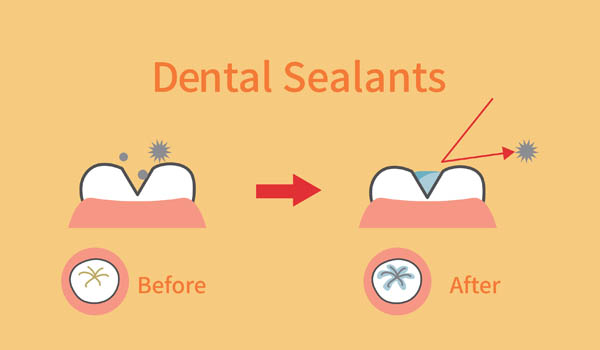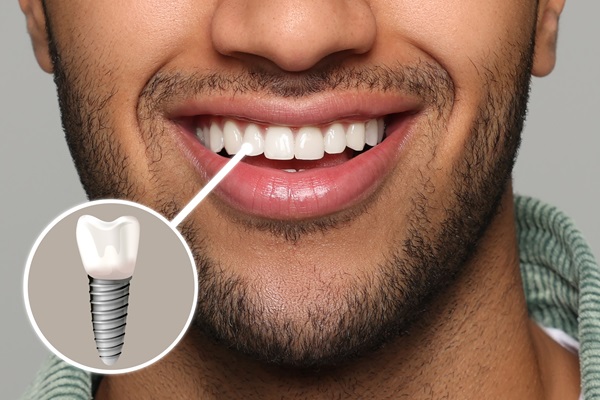Can Dental Sealants Be Used for Adults?

Dental sealants are an effective preventive treatment against tooth decay that are commonly associated with children and young adults. But what about adults? Continue reading to learn about dental sealants for adults and the purpose the treatment serves.
Dental sealants for adults
Tooth decay and gum disease are the major causes of tooth loss in adults. The two conditions are aided by inadequate oral hygiene. People can reduce the risk of developing oral health issues by adopting a good oral hygiene regimen of brushing, flossing and a good diet. However, a person's genes are also a contributing factor. Some adults are susceptible to decay and will get cavities no matter how well they care for their teeth. Nevertheless, most of the tooth decay occurrences in adults are caused by poor oral hygiene.
Not everyone is the same. Adults who continuously find themselves dealing with decayed teeth can discuss dental sealants with a dentist. Dental sealants shield the teeth with a transparent, thin plastic barrier that covers the entire surface of teeth to keep plaque and bacteria out. The chewing surfaces of the molars and premolars are prime areas for sealants because the grooves (pits and fissures) tend to trap food particles, which become hotspots for bacteria to accumulate.
Applying dental sealants
Dental sealant treatment is easy, painless and fast. First, the dentist will clean the teeth thoroughly and dry the surface. Afterward, they will apply an acidic etching gel that mildly abrades the tooth's surface to improve the sealant's adherence to the tooth. After a few minutes, the dental professional will wash the gel off and dry the tooth again before applying the sealant.
Before applying the sealant, the dentist will use a dental dam of cotton or gauze to barricade the tooth and keep saliva out because the tooth needs to be dry for the process. The resin material is more common among dentists, but another process called "autopolymerization" may also be used. The dentist will use a brush or small syringe to paint the tooth with the sealant. In liquid form, the sealant spreads through every nook and crevice of the tooth. It is important to apply the sealant evenly while leaving no part untouched.
The sealant will harden. For resin sealants, a curing light may be used. The dentist will ensure the sealant does not affect the patient's bite. The entire process takes between five and 10 minutes per tooth.
The benefits
While dental sealants may be used primarily for children, they offer unique benefits to adults too. Getting dental sealants for the teeth costs significantly less than having a cavity filled. A sealant is up to 80 percent effective against tooth decay in molars. That percentage means brushing, flossing and dental checkups are still necessary, but implementing this preventive care makes it less likely for lapses in oral care to result in decay.
Final note
Dental sealants can protect the tooth for up to 10 years. In that time, you will have saved yourself from potential tooth loss or undergoing expensive dental procedures to keep your teeth. If you are an adult and would like to get dental sealants, talk to your dentist for more information.
Request an appointment here: https://lincroftvillagedental.com or call Lincroft Village Dental Care at (732) 842-5005 for an appointment in our Lincroft office.
Check out what others are saying about our dental services on Yelp: Dental Sealants in Lincroft, NJ.
Recent Posts
Your dentist might recommend dental sealant if some of your teeth are vulnerable to decay. These restorations serve as a barrier that keeps food particles, bacteria, and acids out of the grooves of their biting surfaces.Oral bacteria feed on the sugars in food particles stuck on teeth after meals, and they excrete acids that cause…
Dental sealants work by reducing the chances of decay on the chewing surface of the tooth. Dental sealants do not protect the flossing surfaces, nor do they protect the cheek and tongue surfaces. The sealant is not a guarantee against tooth decay, but it is the best possible protection. To avoid dental cavities, you must…
A dental sealant is a cavity’s worst enemy. It blocks bacteria and food particles from the lingual and chewing dental surfaces in your mouth. The result is healthier, stronger teeth that can last longer than teeth without sealants. If you want to know how a dental sealant can block a cavity, here are the facts.A…
Preventive dentistry is a branch of dentistry that focuses on protecting your mouth against common dental issues like tooth decay and gum disease. It include simple things that you can do independently, like practicing oral hygiene, and procedures performed by dentists, like dental cleanings.Taking good care of your mouth makes you less likely to develop…


